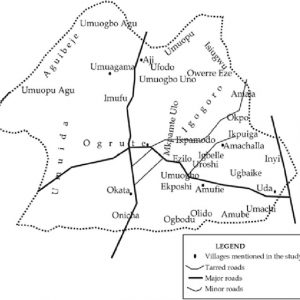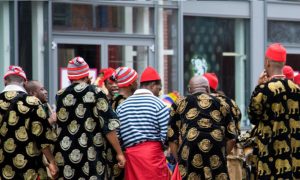
Biafra, Republic of, secessionist country of West Africa, in its lifetime from May 30, 1967, to Jan. 15, 1970. At the outset Biafra comprised, roughly, the East-Central, South-Eastern, and Rivers states of the Federation of Nigeria, in which the Igbo human beings predominated. The country, which took its call from the Bight of Biafra (an arm of the Atlantic Ocean), became mounted with the aid of using Igbos who felt they couldn’t develop—or maybe survive—inside Nigeria.
In Sept., 1966, several Igbos have been killed in Northern Nigeria, in which that they’d migrated to have interaction in commerce. The secessionist kingdom turned into led through Lt. Col. Chukuemeka Odumegwu Ojukwu and covered a few non-Igbos. Biafra’s authentic capital turned into Enugu; Aba, Umuahia, and Owerri served successively as provisional capitals after Enugu turned into captured (Oct., 1967) through Nigerian forces.
Seeking to keep countrywide unity, Nigeria imposed financial sanctions on Biafra from the beginning of the secession, and Biafra broke out in July 1967. After preliminary Biafran advances, Nigeria attacked Biafra via way of means of air, land, and sea and step by step decreased the territory. The breakaway country had inadequate assets at the start of the war—it turned into an internet importer of meals and had little industry—and depended closely on its management of petroleum fields for budget to make purchases abroad. It misplaced the oil fields within and inside the war, and more than 1,000,000 of its civilian populace are believed to have died because of extreme malnutrition.
At the time of its surrender on Jan. 15, 1970, Biafra became significantly decreased in size, its population had been starving, and its leader, Ojukwu, had fled the country. During its lifetime, Biafra shaped through the best 5 nations, even though different international locations gave ethical or fabric support, making Enugu the coal city its capital because the majority of the Igbos had fled there for safety and protection, and also to prepare themselves for war.



